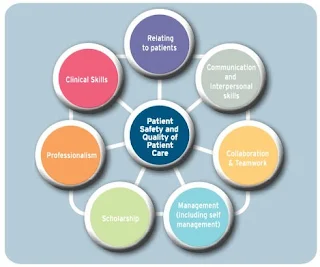After a long and successful career in Ophthalmology I agree wholeheartedly that personal involvement in patient care and collegial contacts along with small to medium sized regional metings or local specialty medical groups are far more beneficial to practitioners, less financially damaging to practices in terms of time away and fragile financial margins in clinical practice.
The impact of macroeconomics on the microeconomics of providers writing the check from practice or personal funds is difficult to support. The IRS deductions are a meaningless endorsement of this ill-conceived extortion by boards of medicine and specialty societies.
All specialty societies should revolt and not provide testing or MOC. The state boards cannot afford to do it, they would disintegrate under the load. They can barely police the misfits who are licensed to practice medicine.
Do we need this?
The Real Goals
Or is This Better ?
The logic of our doing it to prevent someone else from doing it is a negative incentive and misplaced logic.
Dr. Wes: Fearing Exodus: American Board of Medical Specialties Issues Statement on Oklahoma



No comments:
Post a Comment